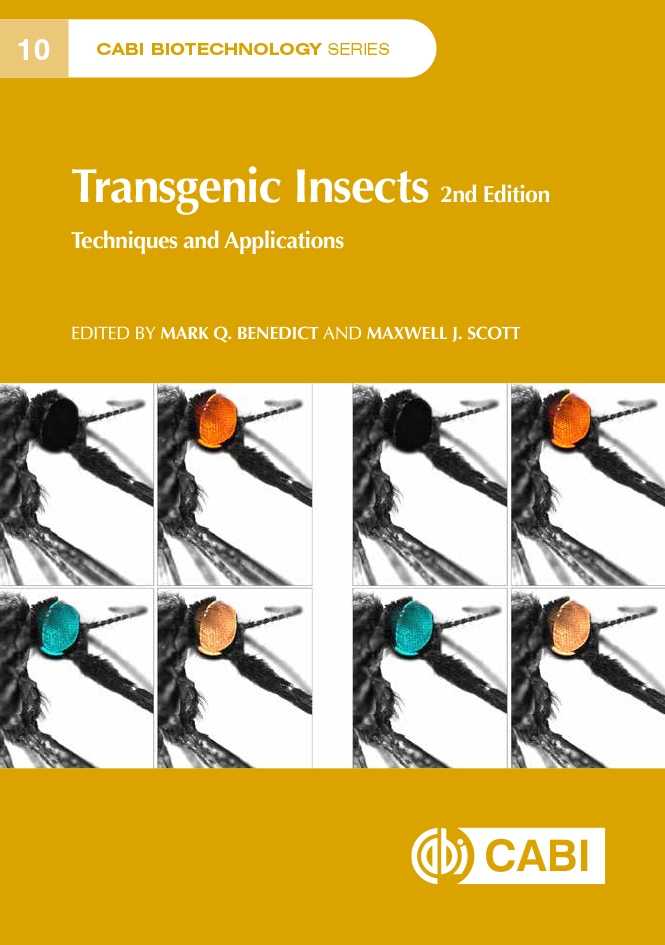Technological advances such as the gene editing tool CRISPR-Cas9 have allowed scientists to alter the genetic material of insects with ever-growing precision. Transgenic insects, from gene drive mosquitoes to genetically modified ticks, are increasingly being developed and considered for a variety of potential applications, including but not limited to the field of human health.

The second edition of Transgenic Insects: Techniques and Applications, edited by Mark Q. Benedict (CDC) and Maxwell J. Scott (North Carolina State University), provides fascinating insight into this advancing field. Through chapters contributed by a wide range of experts — including Outreach Network members from The Akbari Lab, Hebrew University of Jerusalem, Liverpool School of Tropical Medicine and Hygiene (LSTM), Target Malaria and the University of California Malaria Initiative (UCMI) — readers can discover an overview of molecular techniques and their applications, as well as explore topics such as consideration of public attitudes and regulatory aspects associated with transgenic insects. As research in this field moves closer to transitioning from primarily laboratory science to potential trials and applications of these technologies in the field, some chapters also delve into aspects such as modelling, ethical considerations and regulatory oversight.
To understand the full potential of these technologies and issues related to them, it is important that scientists be able to access information that keeps them up to date with the latest research findings. This book promises to offer the reader a better understanding of the development of transgenic insects and the potential that these innovations hold. It will be a valuable resource for students and researchers as well as practitioners in the field, regulators, stakeholders and ethicists.
The book is available for purchase in hardback and as an e-publication.
Recent posts
